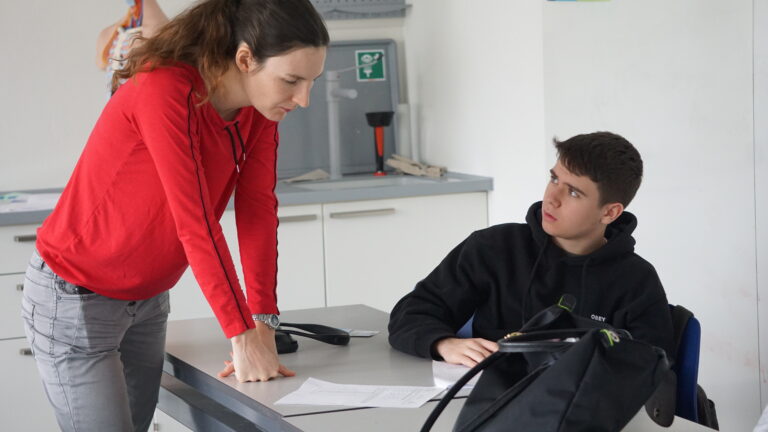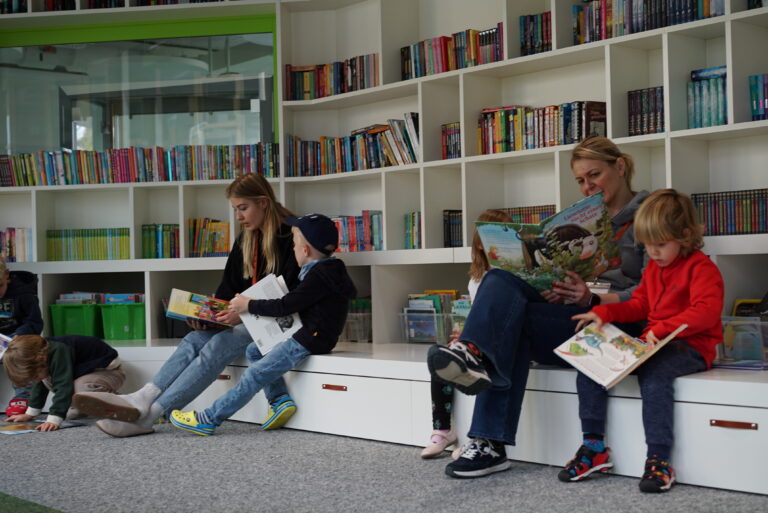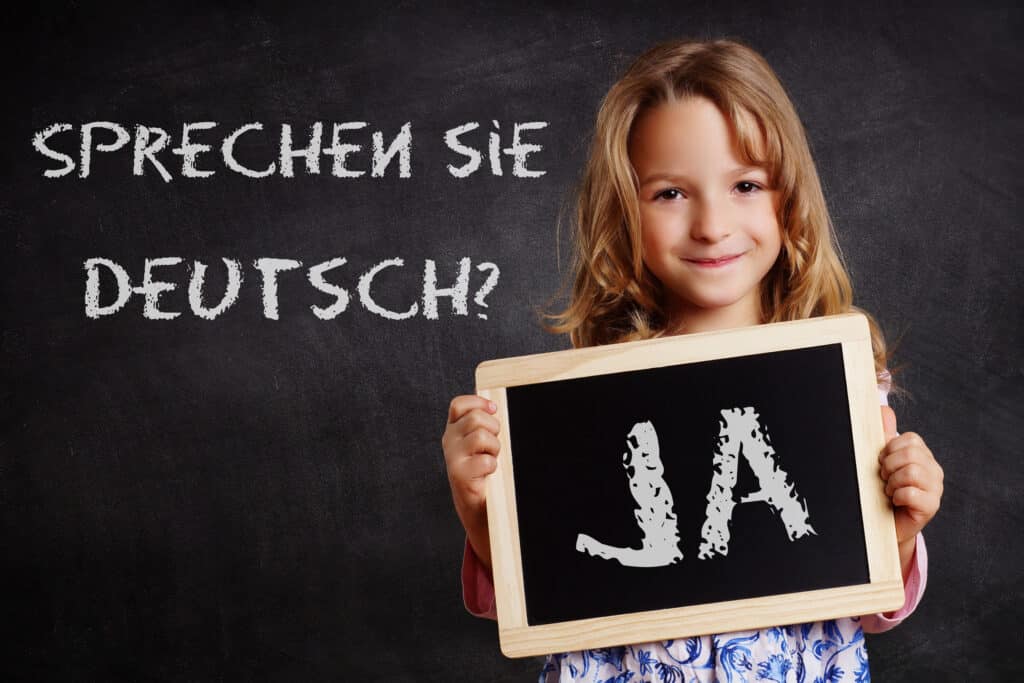Bilingual education
Multilingualism opens up the world
Bilingual education stands at the forefront of our educational ethos, serving as a key component that prepares our students for the demands of a globalized society. Mastery of bilingual communication is not just an academic objective but a lifelong advantage that equips our students for international opportunities.
Proficiency in English and German at a native level empowers OBS students to navigate the complex, interconnected world with confidence, giving them the autonomy to shape their destinies. With an early emphasis on bilingualism, we aim to unlock a world of possibilities for our students, ensuring they are ready to excel in a multicultural environment.
Immersion in everyday school life
In the world of a child, juggling multiple languages is as natural as play. Many children experience the ebb and flow of languages within their own homes, effortlessly switching from one to another, guided by the conversational cues of adults. This organic method of learning by immersion—absorbing and employing language through real-life interaction—is at the core of our approach. It’s an educational journey marked not by rote memorisation, but by context-rich experiences and influential role models.
At OBS, we have intentionally crafted an environment that mirrors natural linguistic exchange. Our faculty consists of native speakers of both German and English, providing a balanced representation of both languages. Our distinctive curriculum alternates weekly between German and English instruction from kindergarten through grade 6, ensuring that each language is not only taught but also experienced. This immersive approach means that our students are not simply learning academically; they are also absorbing the linguistic nuances of each subject matter. To facilitate this process, we introduce key terms in both German and English for every new subject area, fostering the development of a robust bilingual vocabulary that students can use as they progress through their educational journey.


Foundations of Multilingual Proficiency at OBS
Mastering self-expression is among the most sophisticated human skills; the ability to articulate oneself in multiple languages is an invaluable asset. At OBS, we ensure our students achieve fluency in both English and German at a native level, equipping them to engage confidently with the global community. This linguistic proficiency opens doors to their futures, providing them with the tools to proactively shape their paths. Our educational model places a strong emphasis on authentic bilingualism right from the start, setting the stage for true linguistic competence.
BABYCARE AND PRESCHOOL
In our baby care and preschool groups, we introduce German and English early on, laying a solid foundation for bilingual language development.
FROM KINDERGARTEN TO GRADE 6
The entire curriculum is delivered in English and German, with the language of instruction switching every week.
FROM GRADE 7
Starting from Grade 7, students receive instruction in the same language for an entire year for each subject, enhancing their in-depth understanding of the material and the key terms. Mathematics is the only exception, where the teaching language alternates each semester. This is so that the cumulative mathematical skills are reinforced during the academic year in the students’ more proficient language.
FROM GRADE 10
From Year 10 onwards, the subjects taught in German or English are determined by the chosen school-leaving qualification.
The bilingual brain: “The Cognitive Advantages of Bilingualism”
The human brain gains numerous cognitive benefits from bilingualism. Engaging in multilingual communication directly influences brain function. For bilingual individuals, all languages they know are simultaneously active; speaking one language necessitates the suppression of others, enhancing impulse control. Research indicates that bilinguals have an easier time switching back and forth between tasks and filtering out irrelevant details. They typically respond to visual and auditory prompts more swiftly and are less likely to make mistakes. This phenomenon is known as the ” interaction effect of multilingual talent.”
Bilingual education offers a spectrum of positive outcomes, including:
- Enhanced intercultural awareness
- Refined communication abilities
- Sharper logical reasoning
- Improved decision-making skills
- Better reading and numerical understanding
- Strengthened memory
- Increased self-assurance
- Greater empathy
